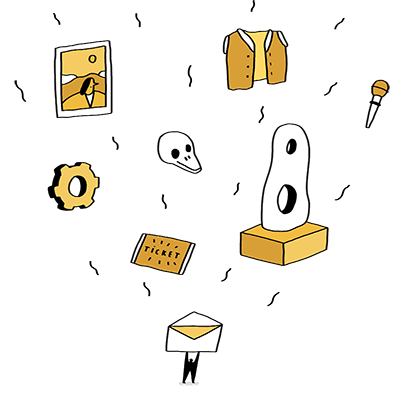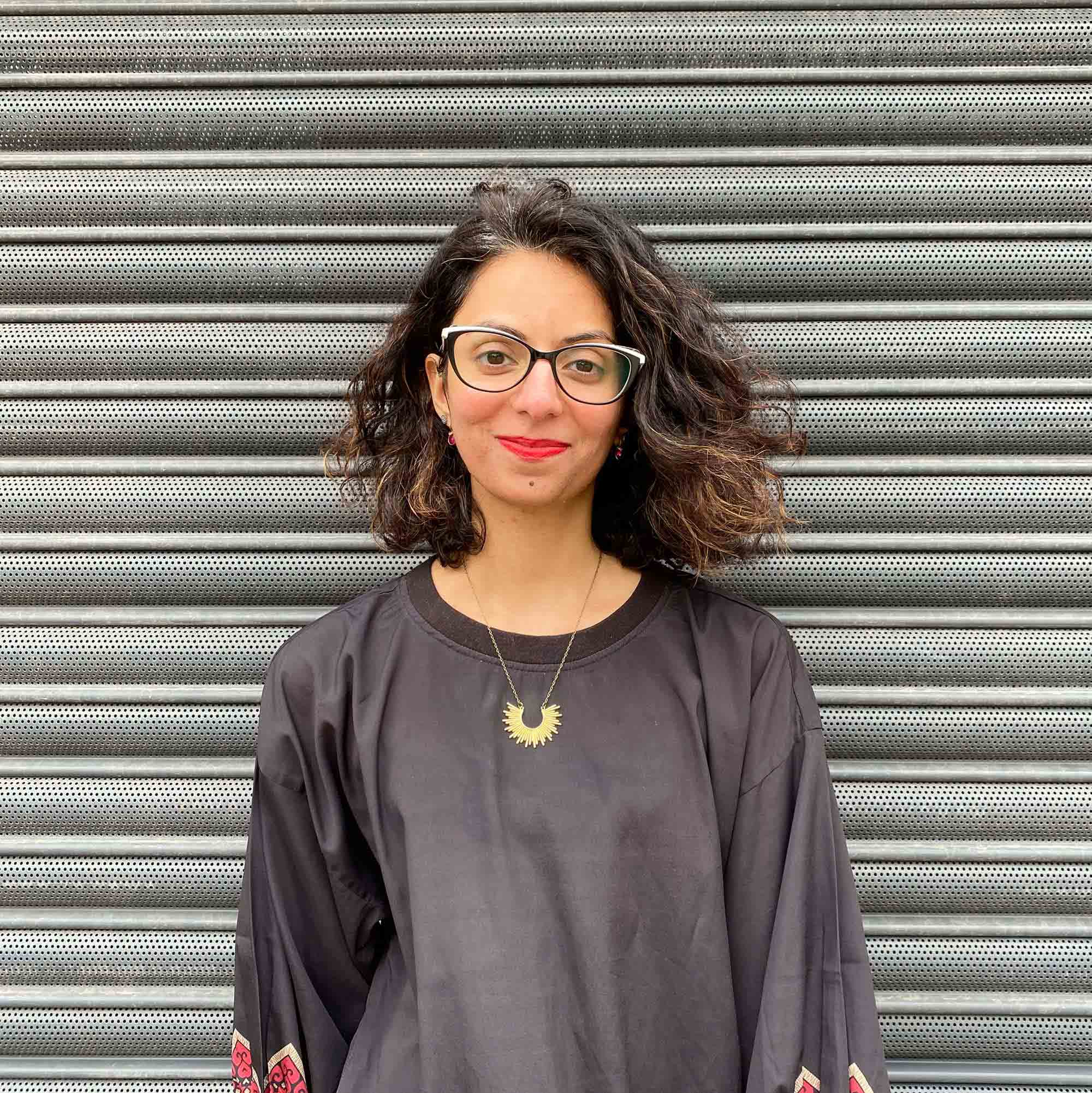For September’s Cog Night, the team were at Bush Theatre for The Real Ones. Nazma gives her review.
The Real Ones at Bush Theatre
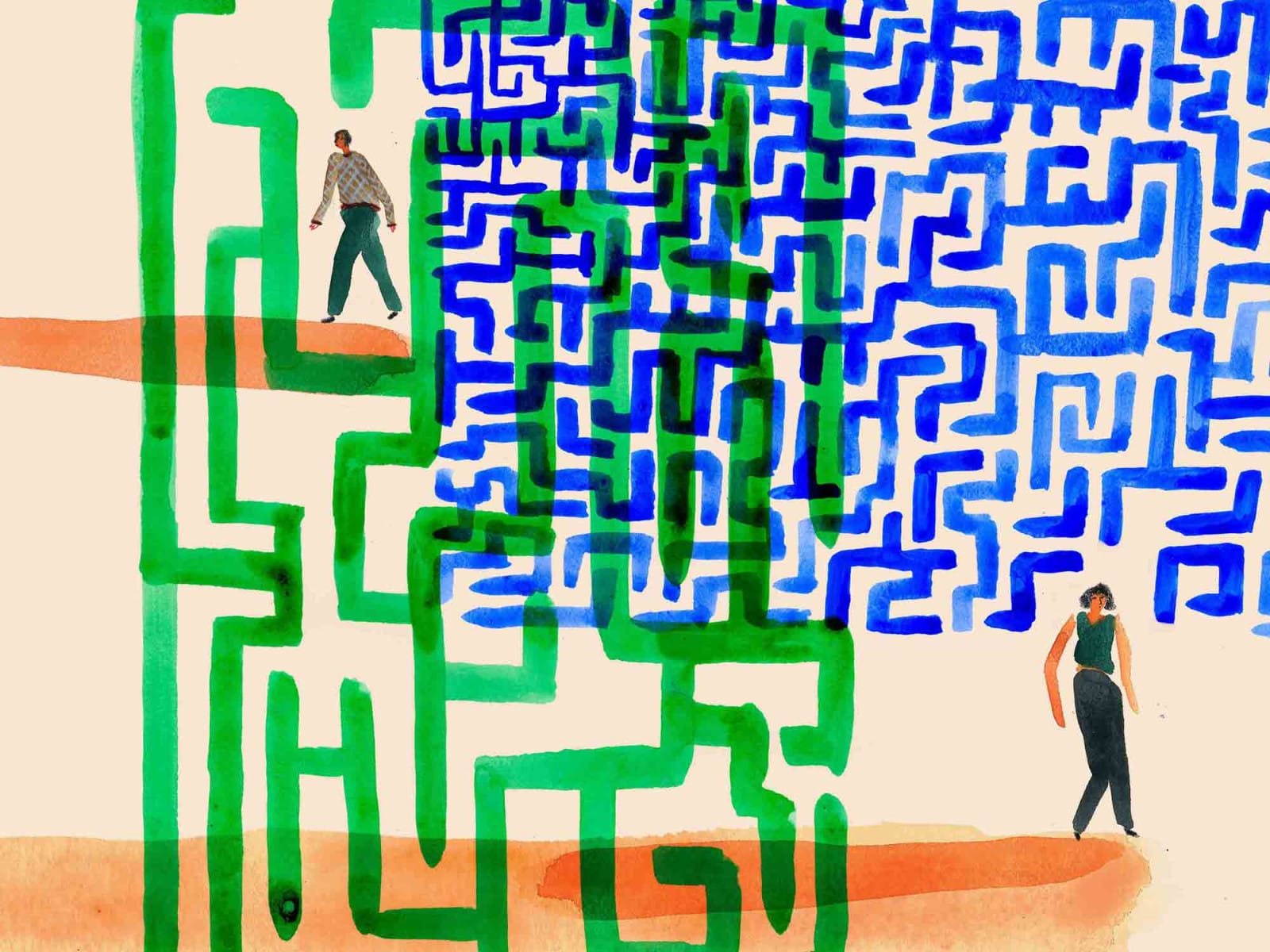
The Real Ones was my suggestion for September’s Cog Night. Anyone who pays close attention to Cog’s Cultural Calendar emails might spot a theme in the type of theatre shows I am drawn to – South Asian and Muslim stories and writers.
In the last month I have massively enjoyed Peanut Butter And Blueberries at Kiln Theatre and Vitamin D at Soho Theatre, and have tickets booked to see Statues at Bush Theatre. The social media algorithms have picked up on my tastes, which might have been how this show came into my consciousness.
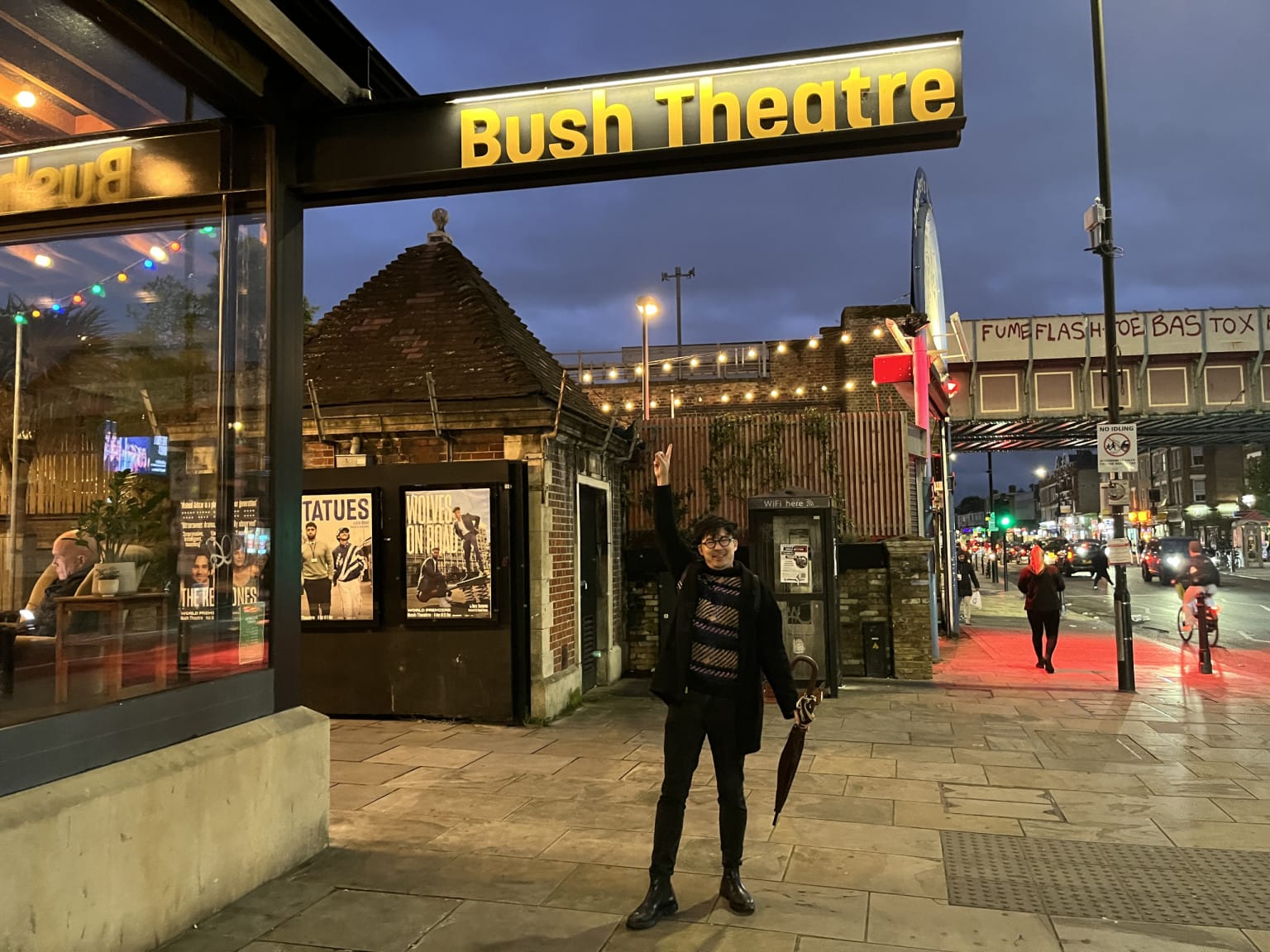 Justin outside Bush Theatre
Justin outside Bush Theatre
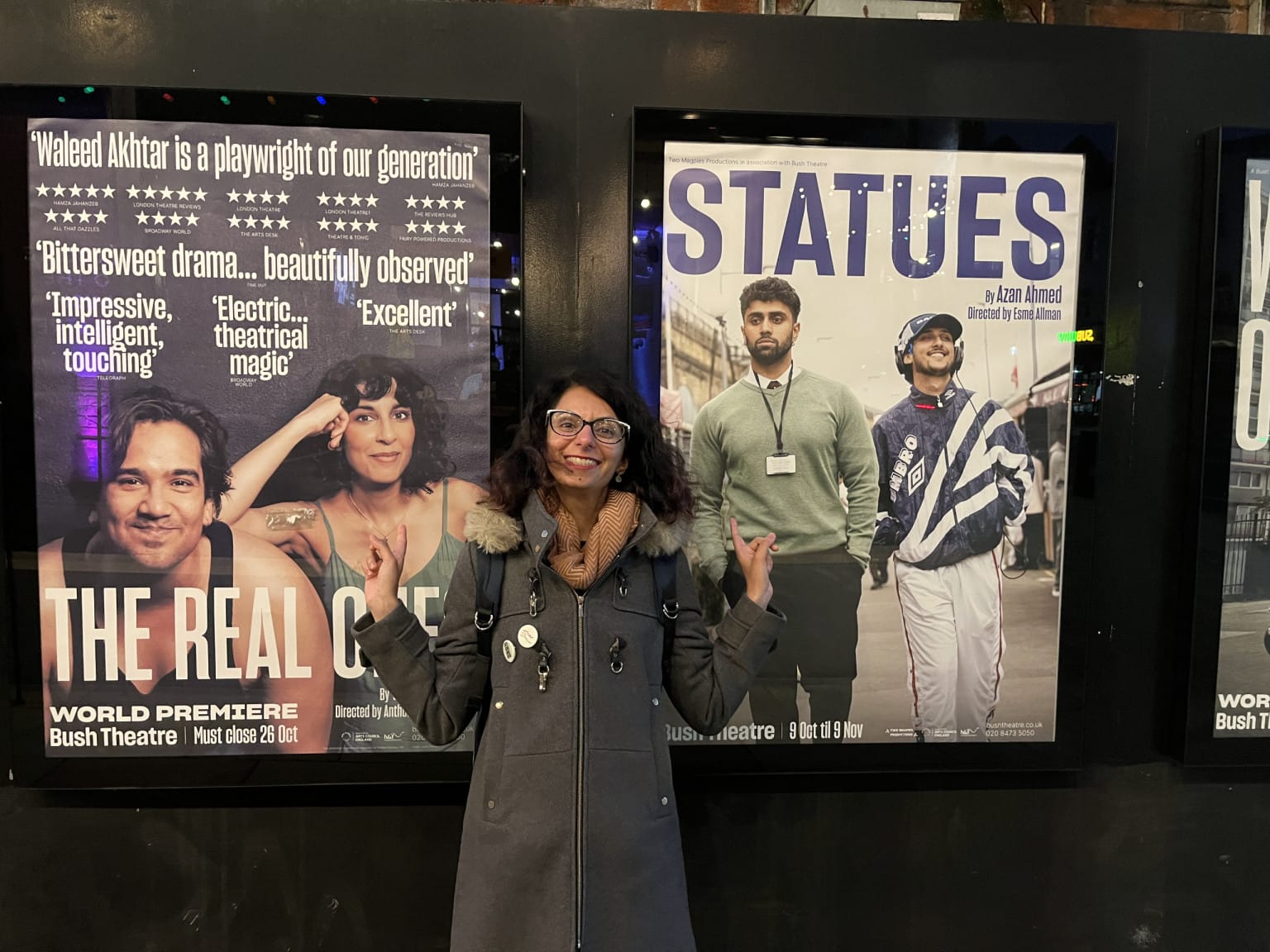 Nazma posing with The Real Ones and Statues posters
Nazma posing with The Real Ones and Statues posters
Justin and I set off from the Cog studio together on this rainy evening and met the rest of the Cog team at the venue.
We entered The Holloway Theatre space and (after heading in completely the wrong direction) found our seats. A selection of 2010s indie music played as the audience settled in (the playlist is on Spotify if you fancy a listen – The Real Ones playlist).
By some lovely coincidence I spotted two of my Manchester friends, Isabelle and Griff just a few rows away – what are the chances of meeting here eh? I popped over to say a quick hello and managed to get back to my seat just in time for the show to start.
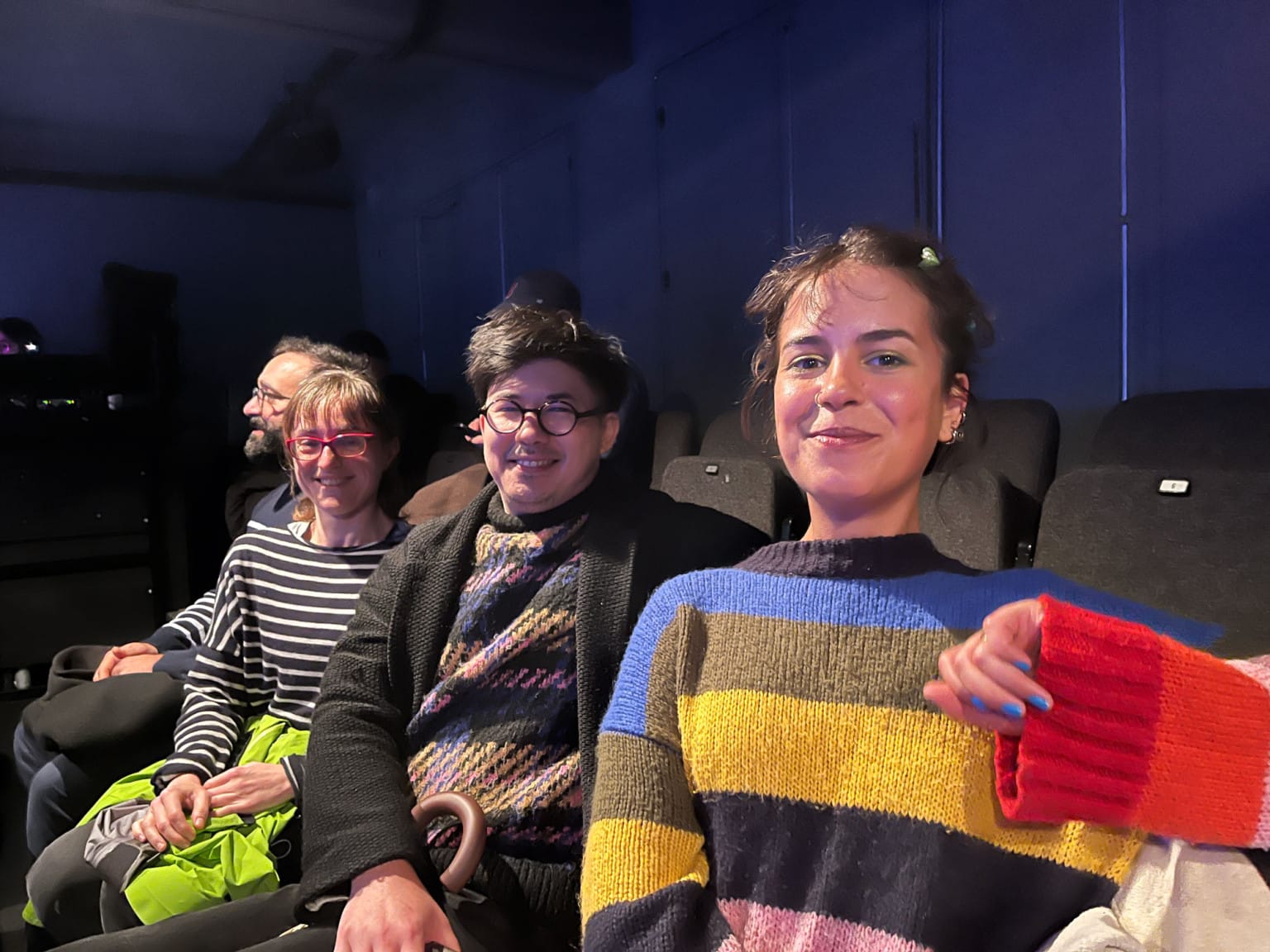 Marta, Justin and Lily
Marta, Justin and Lily
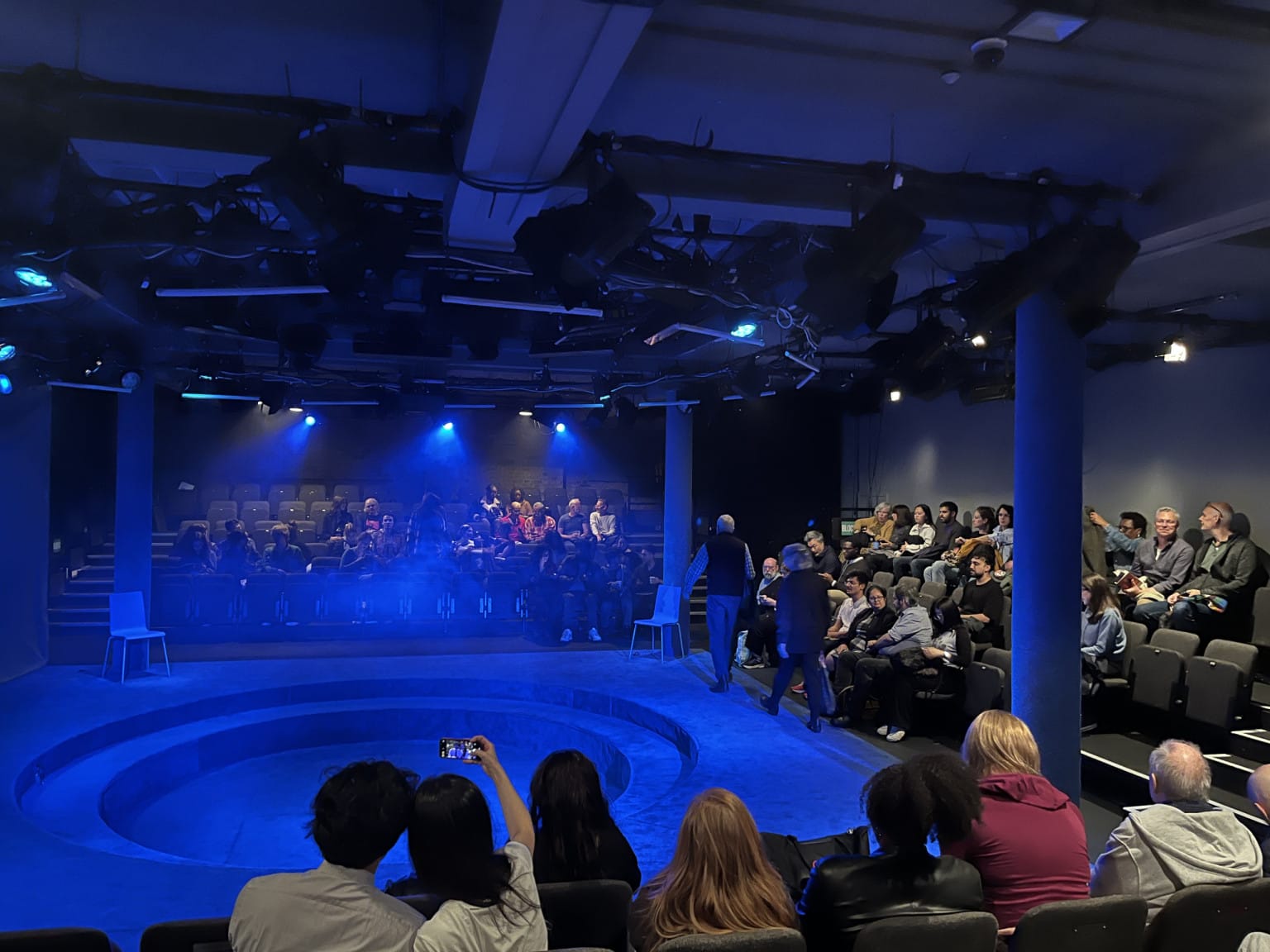 The audience settling in The Holloway Theatre before the show
The audience settling in The Holloway Theatre before the show
The show begins with a club scene in which we are introduced to Neelam and Zaid, two university students from Ilford, exploring their freedom, identities and their dreams. We come to learn that they’re both British Pakistani, Muslim and aspiring writers.
Moving through time, we follow Zaid and Neelam’s lives and the journey of their friendship from the ages of 19 to 36, with years ticking by on a projected screen.
There was so much depth to these two characters, with so many threads that could easily have been the focus of plays of their own. Class, race and power dynamics in relationships, dealing with grief, who is the bigger sell-out: the person who compromises their art to suit a specific audience, or the person who gives up on their artistic dream to get a corporate job?
This could easily be a TV mini-series, not only in how big it is but how moreish
What stood out the most to me (perhaps due to my own background, and life experience seeing versions of this play out in real life) was the struggle for acceptance among their families and community and how they navigated this particularly regarding their romantic partners.
Early on we hear of Neelam being ostracised for having pre-marital sex and then later for being in a relationship with a black man. For Zaid it’s his sexuality and indecisiveness over whether to tell his parents. We don’t get to meet the family members and wider community but we see scenes with Neelam’s partner Deji and Zaid’s partner Jeremy.
I agree with what Arifa Abkar said in her Guardian review of the show “This could easily be a TV mini-series, not only in how big it is but how moreish”. Having said this, during the last 20 minutes I did start to feel a little restless and I noticed this in the body language among the audience members in front of us.
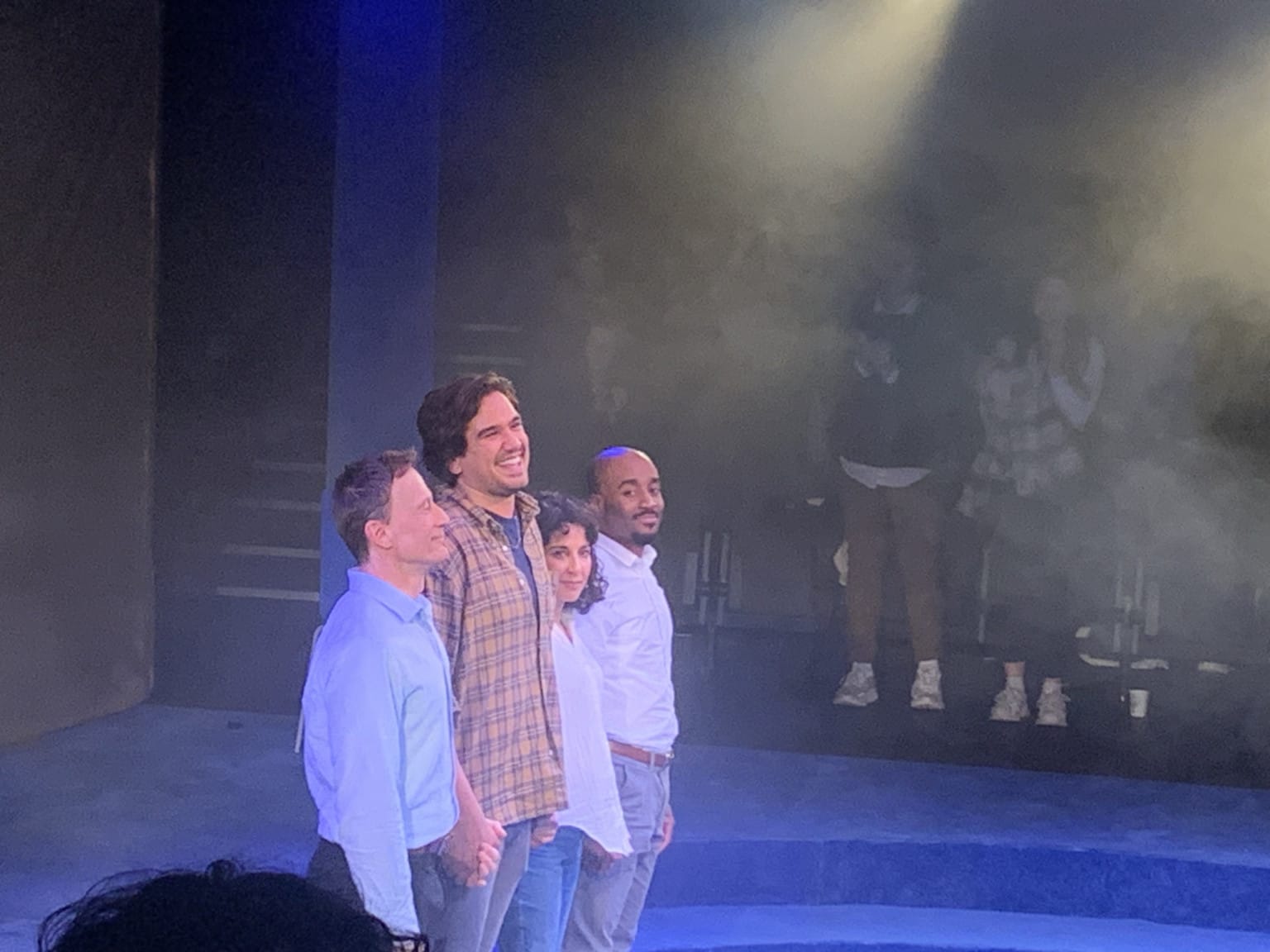 The cast standing for applause
The cast standing for applause
Thinking about the staging of the show, I struggled to pick up some of the dialogue at the very start and my view was obscured at times throughout as the cast moved around the set – particularly when they were sat on the floor.
The format of the scene changes started to feel a little repetitive and at key moments we would get a repeat of that first club scene – student Zaid and Neelam dancing in a drug-fuelled euphoric state professing their love for each other.
During the show I didn’t quite get why this scene was repeated, but afterwards having flicked through a copy of the play text I saw that after each repetition the dialogue was reduced – words missing, like a memory fading, and in that context it made sense.
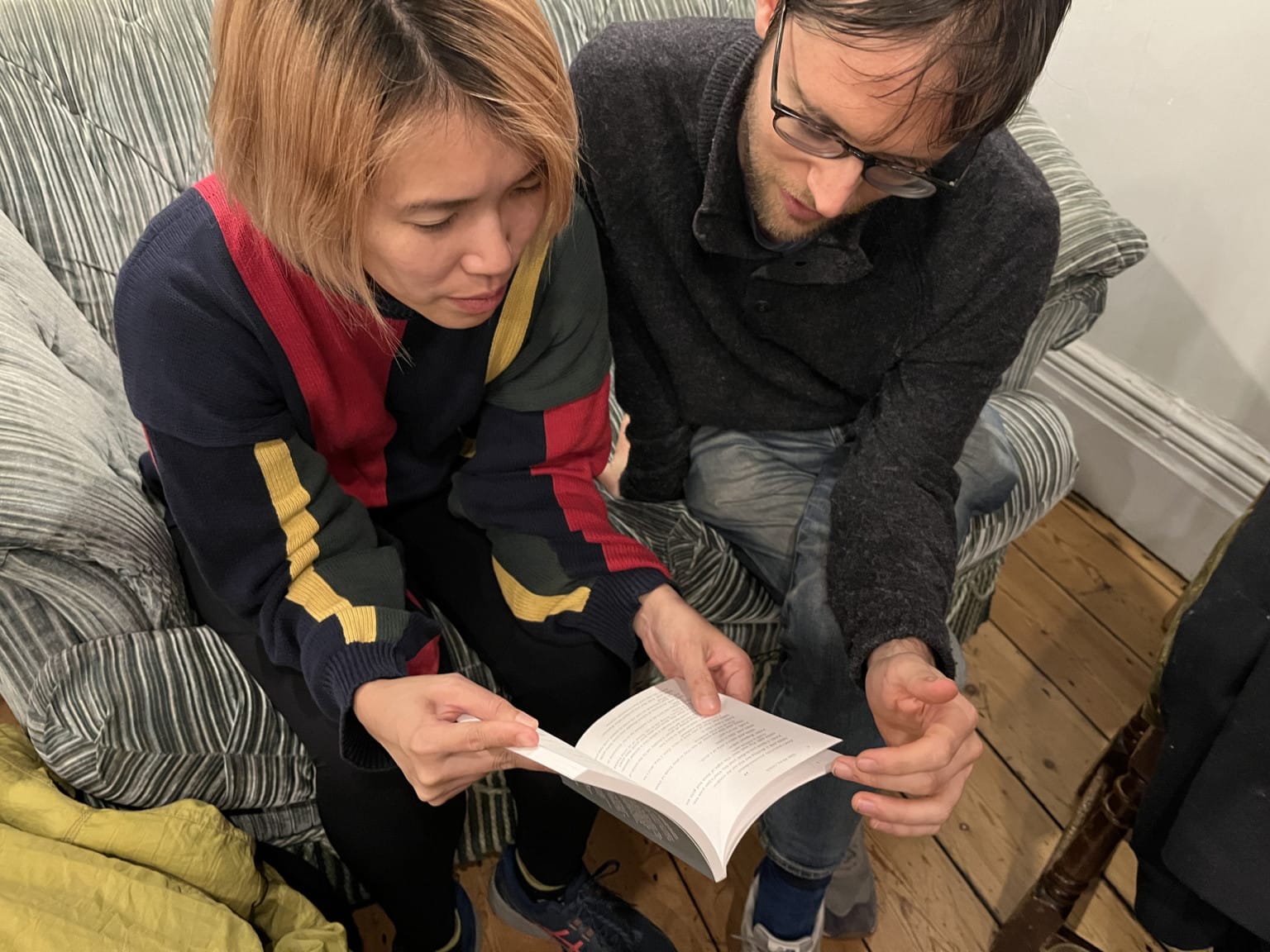 Isabella and Griff browsing the play text after the show
Isabella and Griff browsing the play text after the show
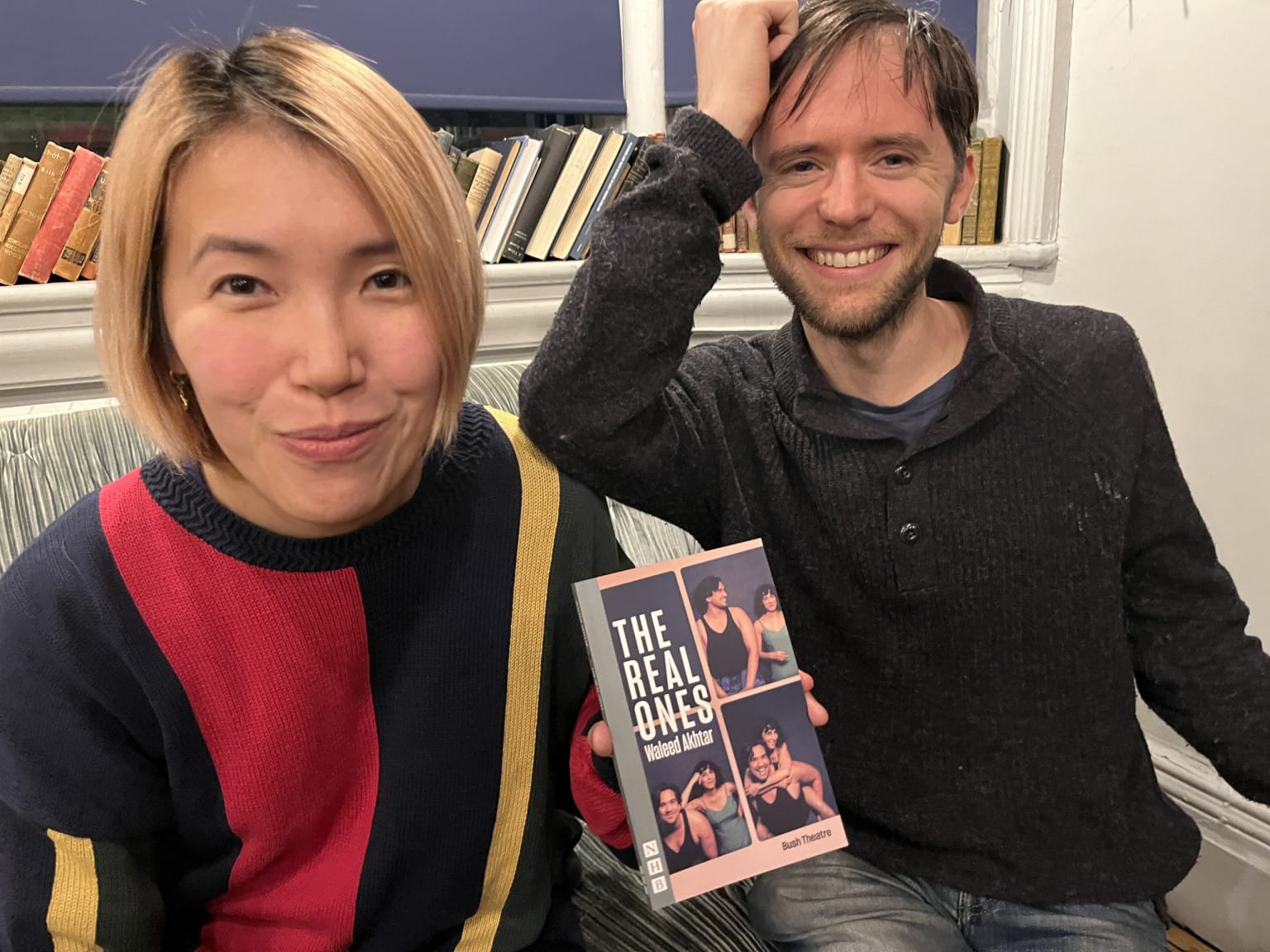 Isabella and Griff copying the main show image
Isabella and Griff copying the main show image
I enjoyed the show but my view on seeing Muslim stories in theatre has shifted recently from full on appreciation and a gratefulness to see people of my faith and cultural background represented on stage in any way shape or form, to viewing it from a more critical lens. Taking a “Riztest” approach and asking the questions – is being Muslim presented as a problem? Is the key conflict of the play about being Muslim?
Zaid and Neelam’s life choices conflicting with their faith and Pakistani community is certainly there throughout and at face value this could be taken as a wholly negative portrayal of Muslims. But at no point do they denounce their faith and through their journeys as aspiring writers and their life decisions we get little glimpses of them speaking up against the stereotypes many people have about Muslims.
Ultimately we’re not all the same and the different paths that Neelam and Zaid go on show this. My critical questions aside, I was really happy to see this show and that British Muslim writers are getting a platform to tell their stories, putting British Muslim characters front and centre on stage. I felt the realness of the The Real Ones.
Illustration by Jenny Tarr for our Cultural Calendar.
